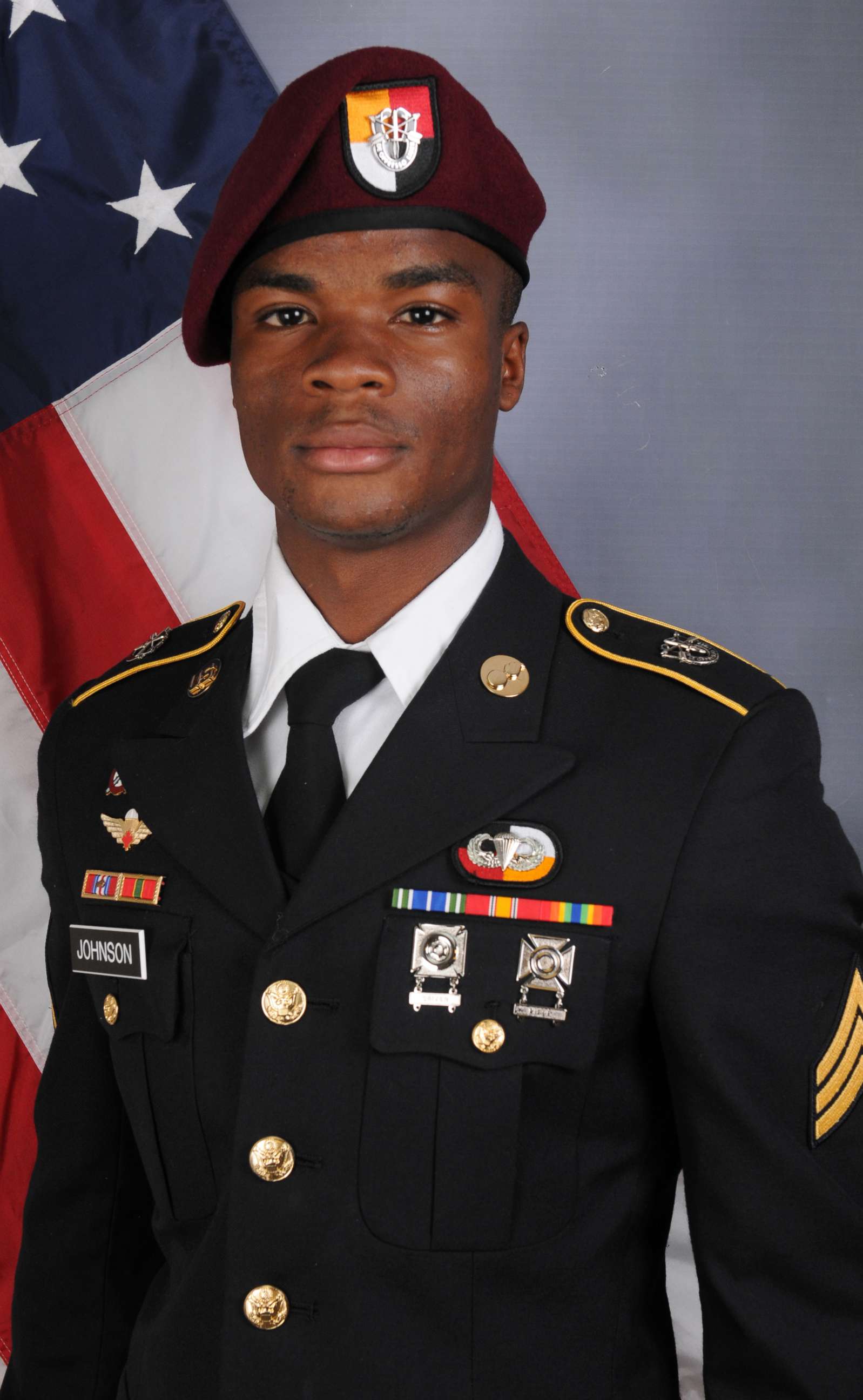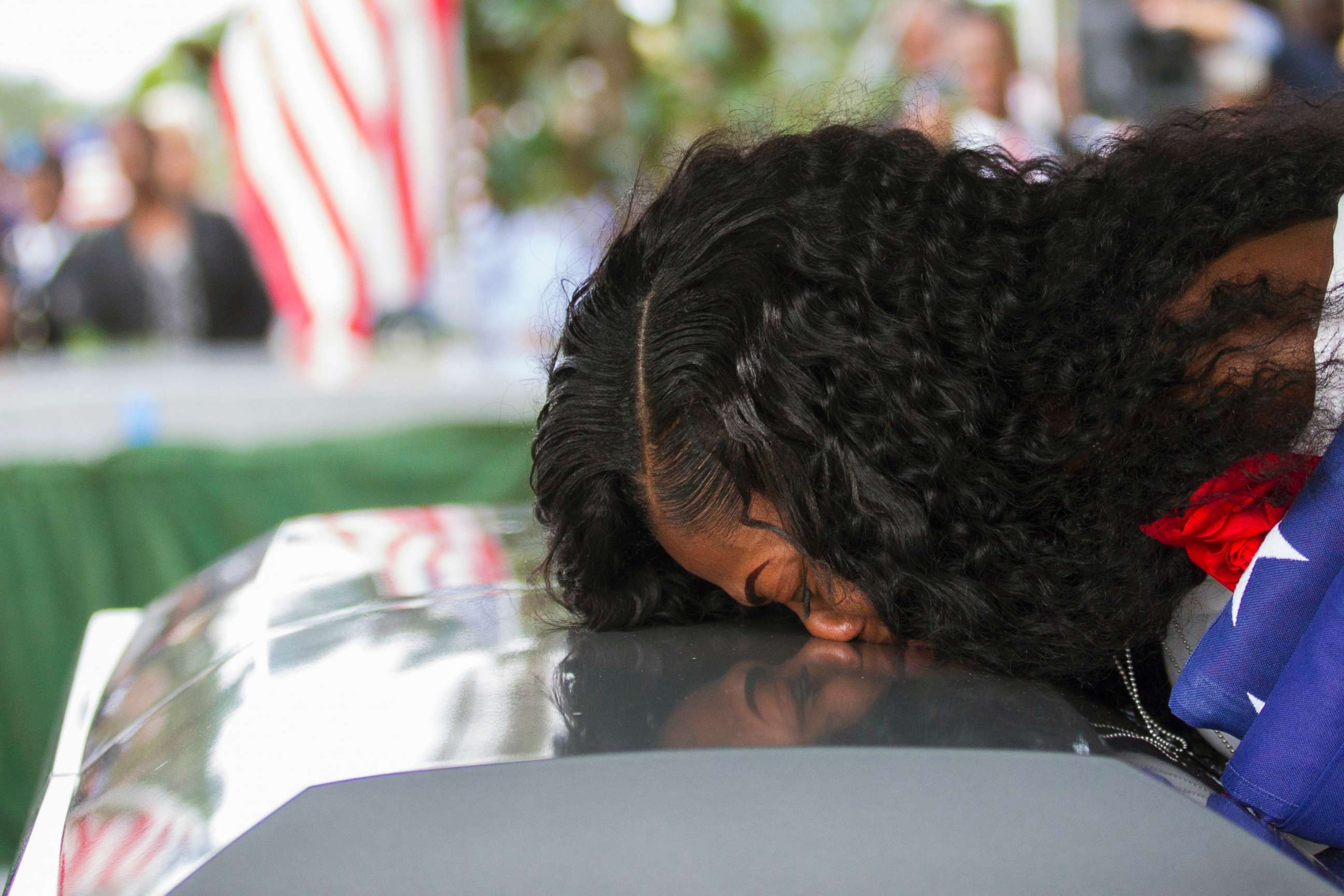Widow's claim raises questions of whether military can prevent viewing of loved one's remains
Myesha Johnson said she wasn't allowed to see her husband's body.
— -- A woman's claim that she was not allowed to see her husband's body after he was killed in combat has raised questions about whether the U.S. military can keep a family member from viewing a loved one's remains.
Myesha Johnson said on "Good Morning America" on Monday that she was not allowed to see the remains of her husband, Sgt. La David Johnson, before his burial this weekend. "Why couldn't I see my husband? Every time I asked to see my husband, they wouldn't let me," she told ABC News chief anchor George Stephanopoulos.
La David Johnson was one of four U.S. soldiers killed in an ambush in Niger three weeks ago. He was missing for more than a day before his remains were recovered.
"They tell me that he was in a severe wrap — like I won't be able to see him," Myesha Johnson said. "I need to see him so I will know that that is my husband."
She added, "They won't show me a finger, a hand. I know my husband's body from head to toe, and they won't let me see anything. I don't know what's in that box. It could be empty for all I know, but I need to see my husband. I haven't seen him since he came home."

So is the military allowed to prevent a relative from seeing the remains of a loved one killed in combat?
According to Air Force Tech. Sgt. Holly Roberts-Davis, a spokesperson for Air Force mortuary affairs operations at Dover Air Force Base in Delaware, families are not allowed to see remains at the base. Families are made aware of that when they sign forms to gain access to the base to view the return of their loved one's remains to the United States. Exceptions may be made by commanders on rare occasions, she said.
However, loved ones "can see the remains once they are released to the family," she said.
The Office of the Armed Forces Medical Examiner at Dover conducts an autopsy and then transfers the remains to the mortuary office, which embalms, restores and dresses the remains.
Roberts-Davis was not privy to the circumstances of the preparation of Johnson's remains but provided general details of what can happen to remains that have suffered extreme trauma.

Generally speaking, if there is too much trauma to the remains, they are wrapped in plastic, linen sheets and a wool blanket held in place by hundreds of pins, she said.
Depending on the condition of the remains, the mortuary office at Dover may make a recommendation to family members that they not view the remains, but it is up to them to decide.
If the family expresses interest in seeing the remains, the mortuary works with the funeral home to coordinate a viewing.
"We do work with funeral directors so that a family can view the remains at the funeral home," said Roberts-Davis.
That could include a recommendation about an area in the wrap where the family could see a portion of the remains without conducting a full unwrapping, she added.
The intent is to dress all military service members in a military uniform as they lie in a casket. However, if the remains are wrapped, that is not doable, so a uniform is laid atop the remains in the casket.
"This is a dignified way to present the remains to the family," said Roberts-Davis.
The remains are embalmed early in the process but are not dressed or wrapped until the day before they are released to the family, she said.




